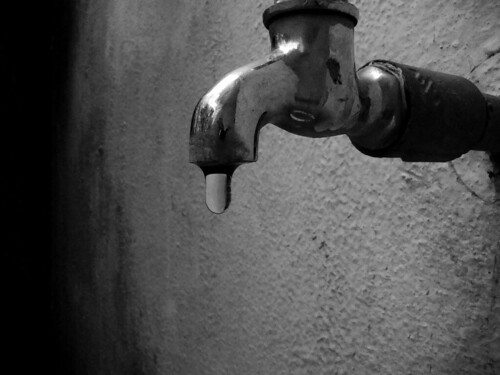We take many things for granted. It takes a prolonged blackout for us to appreciate electricity or a tremendous storm to acknowledge the convenience of safe and well-maintained roads. Access to clean water is, no doubt, another one of those things most of us aren’t as grateful for as we should be. Try to picture a life that didn’t revolve around your daily shower, plenty of water for well-scrubbed dishes or most importantly–safe water to drink and prepare food with.

I realize that it is hard for most of us to comprehend that there are people still living without clean water–after all, with the many innovations we have, how it could it be that something as basic as water is still not available to everyone? Thankfully, we have World Water Day to remind us of this tremendous issue.
Sponsored by the United Nations, World Water Day has been celebrated on the 22nd of March since 1992. Over the past few years, themes of this important day have included, “Water for Cities,” which focused on the impact of rapid urban growth on our water supply and “Water Quality,” which shed light on the environmental challenges of protecting this essential resource.
You may not realize it, but our food and lifestyle choices have a direct impact on water and food security for less developed countries. It is with this in mind that the theme of World Water Day 2012, “Water and Food Security,” was selected. The goal this year is to highlight the impact of our water footprint. Similar to our carbon footprint, which describes how our lifestyle and choices impact the environment, our water footprint is an equally important idea to understand. For example, most of us are unaware that it takes about 1500 liters of water to produce 1kg of wheat and ten times that amount of water to produce 1kg of beef (about 3962 gallons of water per 2lbs of beef). This is one of the many facts you can find at the World Water Day website. I highly suggest checking it out. Think about it: in 2010 we consumed 26.4 billion pounds of beef. That’s a tremendous amount of water supporting our burger habit.
Conveniently, those foods that are best for us are also best for our global environment and these are essential for reversing our current water usage trend. It takes just 40 liters (10.5 gallons) of water to make an apple, while it takes a whopping 7500 liters (1849 gallons) to produce a pound of steak!
Many organizations and policy makers in the US have recommended a diet that is lower in animal proteins and higher in vegetable based proteins, such as beans and legumes. Along with this is a general recommendation to increase our intake of fruits and vegetables. It appears that not only are these changes essential for our health; they are critical for the health of our planet and global community.
World Water Day reminds us that our need to protect our water stretches far beyond turning off the faucet when we brush our teeth or buying high efficiency appliances, though these moves are important. Water, a resource we tend to greatly undervalue in our country, is part of everything we do and everything we eat–whether it appears to be or not. Please do your part by spreading the message of World Water Day and fill more of your plate with nutritious, water-friendly fruits and vegetables.